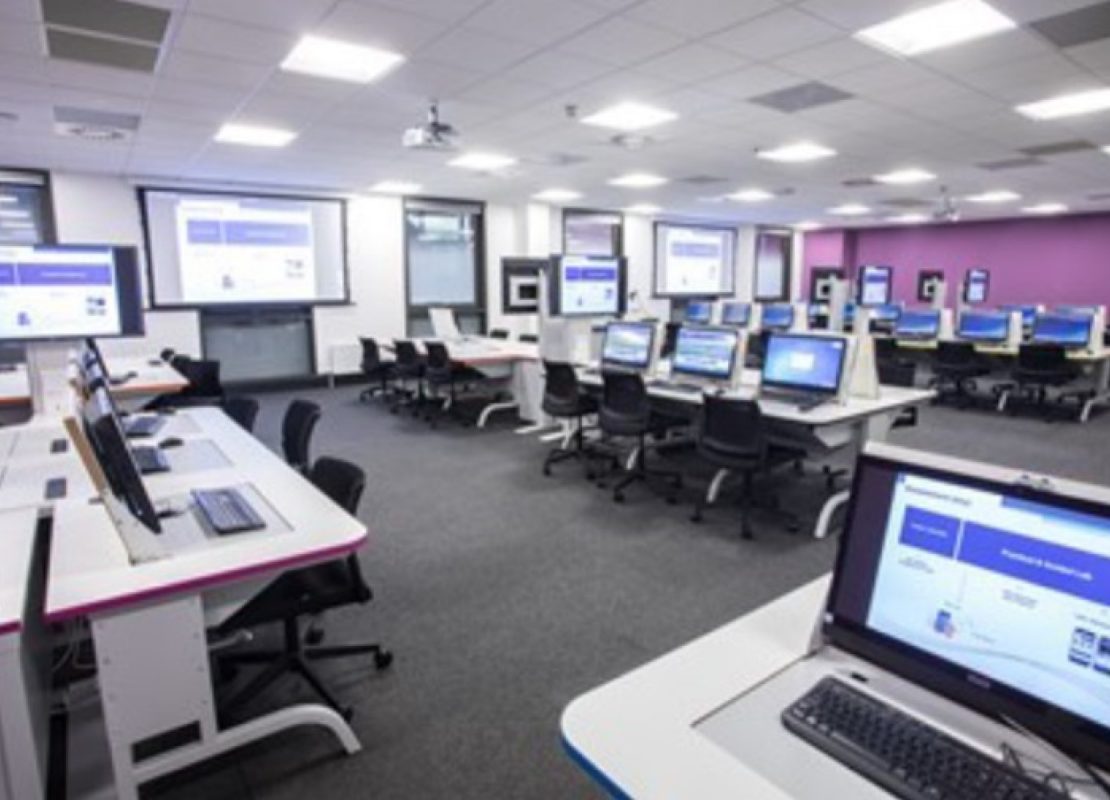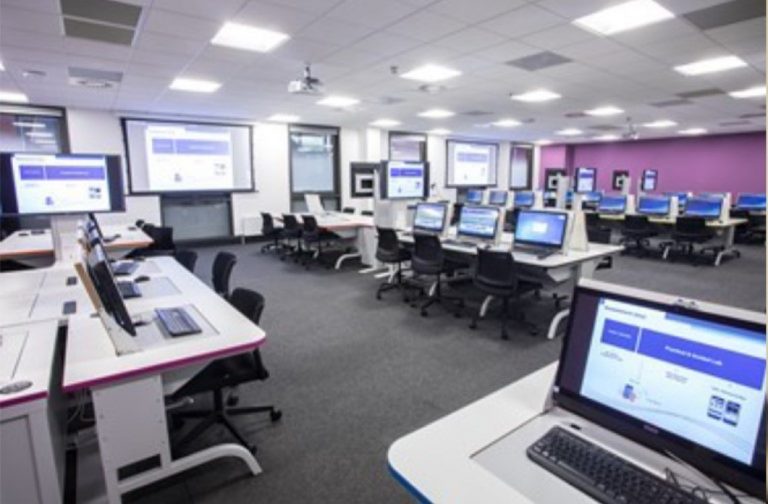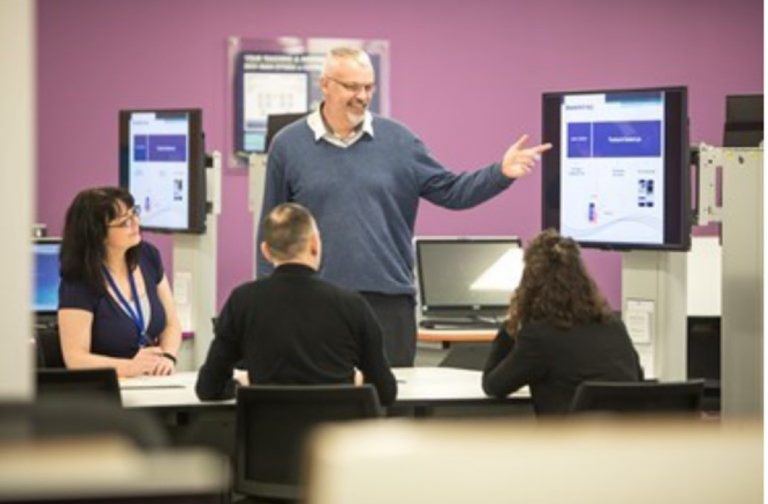
Reconfigurable Computer Lab and Active Learning Studio (ALS)
Swansea University - Swansea, Wales, UK
Details
Location:
Swansea, Wales, UK
Year/Completion Date:
2018
Construction Type:
Refurbishment
About the project
Swansea University’s first reconfigurable computer lab and active learning studio (ALS).
Case Study Highlights
- Create a reconfigurable computer lab that supports active learning.
Design
Design Approach
Location on Campus or Adjacency to Other Spaces:
Capacity:
60 studentsThe learning spaces group designed two layouts for the computer lab:
- The first was a traditional design with pcs seated on rows of individual desks and repeater screens at the end of each row.
- The second design was reconfigurable with pcs located on synergy tables that seat six people with a collaborative screen at the end of each table. The computers can be folded down inside the specialised tables, and the room becomes an ALS that supports teamwork allowing the use of active learning approaches.
Design Strategies
User Engagement in Design
- An academic staff survey was used to choose between the two design proposals, where 90% of colleagues chose the reconfigurable layout as they thought it is more flexible for teaching and beneficial to the student experience.
User Feedback
- Feedback is presented from both staff and students to show the impact on student learning and the adoption of new pedagogies. One of the modules taught in this ALS, in semester 1, 2018 was a final year undergraduate management module titled ‘Application Development’. Both students and lecturer of this module shared their experience of using this space.
- The Students feedback was positive. Other comments reinforced this positive feedback about the benefits of peer instruction but specifically referred to the design of the teaching space: - “This new lab promotes enhanced pedagogy and equips us with all the possible tools required for this module to interact, engage, learn and work.”
- In addition to the student feedback, the lecturer of this module gave direct feedback: - “I wanted to express my thanks for making A019 in Engineering happen. My 3rd years and I used this new space in multiple ways this week and it’s a really supportive (and cool) learning environment. They did formative peer presentations to each other and then we folded the pc’s down allowing real social & peer learning / communication between students on the tables. I can’t tell you how much this helps promote learning (compared to standard PC lab layout) and the students appreciate it too. Couple of pics attached to show you what I mean, it’s worth expressing our gratitude, and really thank you all.”
- The lecturer fed back verbally that it would be useful to have some whiteboards fitted in the room to enable more traditional learning activities when appropriate.
Flexibility
- Create a reconfigurable computer lab with foldable PCs located on synergy tables with a collaborative screen at the end of each table.
Hardware
- A digitally enhanced ALS with collaborative screens; personal computers (PCs).
Software
- Wi-Fi enabled connectivity between all devices; and linked spaces using cloud-based virtual collaborative platforms.
- An application enabling students to use their own devices to control the collaborative screens and the lecturer to share any collaborative screen content to all the others, and projector screens.
Further Information
Commentary
- The ALS links the Swansea University collaborative space with further education colleges in the region.
- It led to the College of Engineering at Swansea being invited to join a globally delivered group design module with partners in the US, Brazil and France.
- It paves the way for consideration of new funding and educational models where students can study elective modules outside their home institutions while retaining the benefits of active methods.

